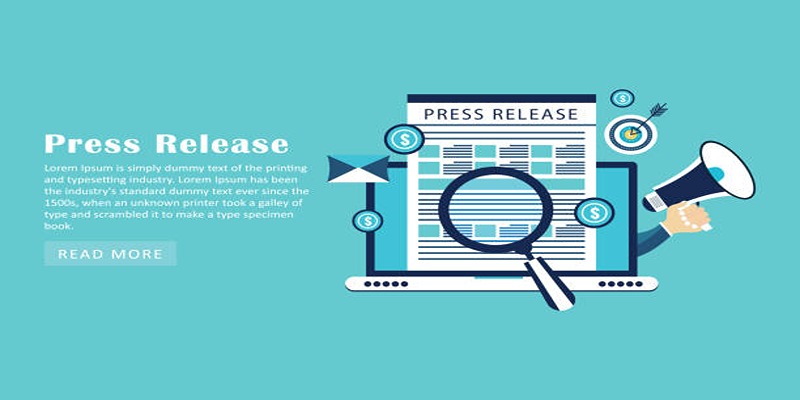December 2022's Top Providers of Home Equity Loans
Jan 12, 2024 By Susan Kelly
Borrowing against a home's value is possible with a home equity loan. Equity is the difference between the amount still owed on a mortgage and the worth of your house in the current market. Borrowers who wish to repair or renovate their homes or eliminate or consolidate high-interest debt often turn to home equity loans.
We have developed a list of home equity lenders who excel in several areas, like giving cheap fees, low loan prices, ease, and flexibility, so there's something for those with diverse goals and financial circumstances.
Discover

Discover is best known as a national bank for its rewards credit cards; nevertheless, the company also provides a full suite of banking products and services, including traditional deposit and withdrawal accounts, personal loans, and education financing. Because of Discover's widespread availability and competitive interest rates, we opted for this financial institution.
BMO Harris Bank

Although BMO Harris Bank's 600+ physical locations are concentrated in Arizona, Florida, Illinois, Indiana, Kansas, Minnesota, Missouri, and Wisconsin, the bank's internet banking services are available to consumers in all 50 states. It offers home equity loans with low required loan amounts, cheap costs, and flexible repayment terms.
Federal Savings and Loan
The banking and financial services provided by Third Federal (ThirdFed) are comprehensive. The bank is noted for its focus on helping customers reach their financial objectives by delivering cheap rates and few costs.
Regions Bank
The region is a national bank with 15 locations in the United States. It was founded in 1971 and provides a comprehensive range of personal banking services, including checking and savings accounts, credit cards, mortgages, student loans, personal loans, vehicle loans, home equity loans, and lines of credit.
Home Equity Loans: What Are They And How Do They Work?
Borrowing a large quantity of money based on the value of your property is called a "home equity loan." The equity in your house is the market value, less the remaining mortgage balance, and most lenders will allow you to borrow up to 80% to 85% of this amount.
These loans typically range from five to thirty years in length, and their interest rates are fixed during that time. If you default on a home equity loan, the lender may foreclose on your house to recoup their losses. Numerous financial institutions provide home equity loans.
These accounts are quite flexible, so you may utilize them for anything from paying off debt, making some much-needed repairs around the house, and paying for college. How much you may borrow is determined by several criteria, including your equity, your credit, and your ability to repay the loan.
The Equity In Your Home Calculation
Using the debt-to-value ratio of your house, you may estimate how much equity you have in it to borrow. Imagine you have a $200,000 mortgage on a $400,000 property. That's a 50% loan-to-value ratio. If you have 50% equity in your property, you own 100% of it.
If you qualify for a home equity loan, compare that figure to the maximum LTV ratio allowed by your lender. Then, after deducting your current mortgage debt, multiply your home's worth by the maximum LTV ratio allowed by your lender to determine how much you may borrow.
Pros And Downsides of Home Equity Loans
As the money from a home equity loan is often paid out all at once, they are best used by borrowers confident in the amount they will need for their project. Plus, the interest borrowers pay is tax deductible if the money is used for specified home upgrades, making them a viable alternative for people who wish to utilize the cash for such purposes.
However, mortgage interest is no longer tax-deductible if you utilize home-equity loan money for anything other than major house renovations, such as paying off college debt or consolidating credit card debts. The interest rates on home equity loans are often substantially lower than those on personal loans and cash-out refinances, which is another perk.
Some Options Besides Home Equity Loans
A home equity line of credit (HELOC) or loan can be a fantastic way to borrow money, but they are only ideal for some. The following are some possible substitutes for a home equity loan:
Refinance With Cash-Out
The term "cash-out refinancing" refers to a scenario in which the borrower takes out a new mortgage for an amount greater than the balance of the existing loan.
Reverse Mortgage
Homeowners 62 and up may be eligible for a reverse mortgage, a loan that allows them to access a portion of their home's value as a source of retirement income.
Individual Loan
You may use the funds from a personal loan for anything, with the repayment schedule entirely up to you.
-
 Business Sep 20, 2024
Business Sep 20, 2024Top 9 Press Release Distribution Services to Elevate Your Brand in 2024
Explore the top press release distribution services for 2024, and discover how to enhance your brand visibility and reach your target audience effectively.
-
 Business Nov 05, 2024
Business Nov 05, 2024How To Measure The Corporate Impact: A Complete Understanding
Emphasizing thorough methodologies for evaluating social and financial impacts, learn how to gauge company impact properly
-
 Know-how Nov 24, 2023
Know-how Nov 24, 2023Understanding Current Mortgage Rates: A Look at the Future
It delves into the implications of government policies, creditworthiness, market transparency, and individual financial outlooks on mortgage rates. The guide also highlights different mortgage terms, interest rate structures, the influence of economic indicators, and the significance of credit scores.
-
 Business Nov 05, 2024
Business Nov 05, 2024A Guide To Equity Accounting 101: Everything You Need To Know
A starting point's guide on equity accounting for startups. From stock options to control of dilution, learn the foundations
